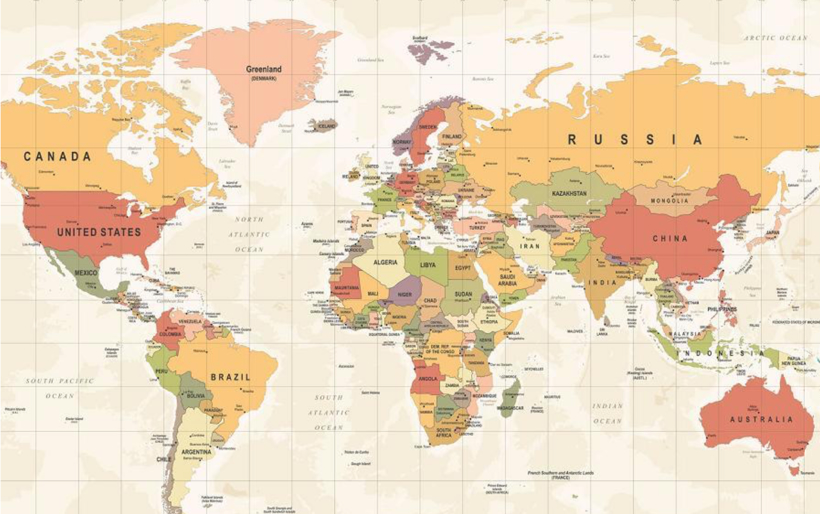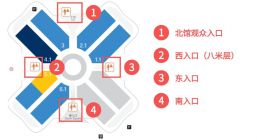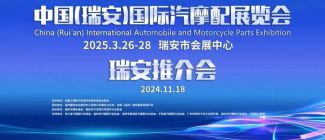Scan QRCode

When the bugle of deglobalization really blows, the market opportunities and protection brought by China's policies will make more foreign manufacturers face the choice of setting up factories in China, while Chinese parts manufacturers will face another new layer of opportunities without risking the high risks of logistics, tariffs and even political factors in supplying overseas products.

"Our penalty now far exceeds the profit, but the delivery loss is more."
In the program of "half an hour of economy", the reporter interviewed a foreign trade parts manufacturer in xiamen.The company is moderate in size, mainly engaged in the export business of foreign trade parts to North America, South America and other places.
Thanks to efficient container shipping logistics and lower costs, the parts supplier has racked up orders in a few years.The sudden outbreak, however, has complicated matters.In the face of an increasingly tight blockade, they have no choice but to ship by sea, while the cost of air freight has increased by four or five times."We lose a lot of money for every order we ship," the chairman said helplessly to the camera.
This is not the first bad thing for the foreign trade company in nearly a year.A year ago, the sudden start of the U.S. trade war with China caught many foreign trade companies off guard.The "global" trade model is almost vulnerable to policy protection.
In 2016, when the new US President Donald trump officially won the election, a tide of "anti-globalization", represented by himself and echoed by many people, has been quietly flowing.
What is deglobalization?And why have so many people started to support it?The first thing to understand is the causes of globalisation.
After the second world war, the pace of global industrialization nearly stopped, the major countries outside the United States capital shortage.As a result, a wave of labour-driven globalisation has taken hold.Low-cost labor countries become "supply depressions", attracting the influx of developed capital;Countries with high-cost labor take technology and economy as input and enjoy the convenience of globalization.
With the development of science and technology, the mechanization of low-end labor force and the shrinking dividend caused by the general increase of labor cost are driving the continuous flow of economic "deglobalization".With the power of capital represented by trump and advanced economies such as the United States, the voice of labor dividend has become less and less, and the globalization based on this premise has been increasingly questioned.
In other words, "globalisation" has never been seen as the end of the world economic spiral.
When "globalization" is no longer popular
When something is reasonable, profitable, and promising, all it needs to become popular may be a suitable trigger.
Four years later, the outbreak appears to have unwittingly acted as a catalyst.The outbreak's devastating impact on global market flows is a jarring reminder that in some cases globalisation may mean vulnerability to risk.
But for China's automotive supply chain, this undercurrent of deglobalisation may bring new opportunities.
A total of seven Chinese companies made the top 100 list of world auto suppliers released in 2019, up one place from the previous year.But judging by the size of China's home-grown car manufacturing, that is not satisfactory.
The indigenisation of the supply chain system was supposed to represent the flourishing of the field.But the number of suppliers that supply parts for these cars still seems disproportionate in China's vast auto supply market.
In addition to the fact that suppliers are still fragmented and geographically oriented, being at a disadvantage in competition with foreign "quality brands" is also a key factor.Although China now has a mature supply chain with high quality, it still lives in the shadow of foreign brand suppliers such as Bosch and magna in the wave of globalization.
Because of the "low profile" of domestic auto parts manufacturers, this field also lacks the spotlight.Before the ningde era, few suppliers gained sustained attention.
How are they getting on at this moment when things are about to change?Are you prepared for another potential possibility?
Tap "undercurrent"
In the past year, many head suppliers have ushered in a critical moment of merger and integration.In February, saic motor corp. 's hualand motors announced acquisition of its wholly owned subsidiary yanfeng automotive trim systems co., LTD. (hereinafter referred to as yanfeng company) and Adient PLC billiton (Ann) was established by yanfeng automotive trim systems co., LTD (hereinafter referred to as yanfeng interior) 30% stake, after completing the acquisition, yanfeng interior 100% stake will be under hualand auto power, this is also one of the world ranking of 15, the first parts of domestic enterprises long integration an important step on the road.
Yanfeng company, established in 1995, was once the product of the joint venture between saic and visteon, a well-known international parts company. In the subsequent development, it successively established joint venture subsidiaries with antaotuo, Johnson and other foreign manufacturers.
With its "hybrid" background and the strong backing of saic, yanfeng is at the forefront of overseas business expansion, and has long-term export agreements with Daimler, BMW, Volkswagen, ford and other manufacturers.In China, its customer list also has saic, geely, Beijing auto, jianghuai and other familiar figures.
From a 50:50 sino-foreign joint venture, to a 70-30 Chinese dominance, and then to a 100-0 full power, yanfeng's step by step repurchase of Chinese capital seems to confirm that the anti-globalization road is going on quietly.In the new era when capital is king, the inconveniences caused by joint ventures are increasingly intolerable.Purer forms of ownership also seem to reflect purer forms of capital control over entities.
After the integration, from China auto's financial results can see that the recent period of growth of the road is not smooth.The financial results of the third quarter of 2019 showed that its operating revenue decreased by 11.11% year on year, and its net profit decreased by 22.58% year on year (13.9% after deducting non-profits), indicating an overall downward trend.
China auto's financial results are not alone.In some ways, parts suppliers have been the most injured in the car industry's winter.As one of the first leading suppliers to release the annual report, the second largest domestic hub manufacturer wanfeng aowei's financial report is worth reference:
Data show that in the past 2019, the operating income of wanfeng aowi dropped slightly by 1.84% year on year, while the operating profit dropped by 23.09% year on year, which means the sales profit of products has been severely squeezed and the cost has been soaring.It also represents an increase in 2019 in areas such as research and development and investment in new projects.
From the simple changes in the data, it is not hard to see the components of the "hard time" behind the undercurrent.In contrast, component manufacturers are more vulnerable to pressure than oems, and the competitive pressure in the market is also magnified.
At the end of 2019, citic daika, another major domestic component company, was the first to complete the share restructuring.Citic securities (00267) announced the sale of a 57.89% stake in car aluminium parts maker citic decca to a consortium of eight investors for a total price of about 5.5 billion yuan.
The completion of the deal, in essence, gives citic daika the ammunition it needs for its next "play" : on the one hand, it will bring in new investors and increase its working capital;On the other hand, the expansion of esop can also generate new dynamism within the system.
After the equity deal, 2020 will be a critical year for citic decca.But as this undercurrent spurs it and other suppliers to take the next step, it may need to consider more possibilities.
Another way out
Compared with the worries of traditional parts makers, suppliers in the new energy sector seem to have entered a kind of "ice and fire" between one kind of madness and another, all related to tesla's factory in Shanghai.
On January 7, the shenzhen stock exchange listed molding technology (SZ: 000700) soon after the opening of the trading limit.In the following 16 trading days, molding technology, like a bull, cut down 13 trading limit, the market value also soared from the original 3 billion to 33 billion, became the "2020 no. 1 monster stock".
Molding technology with what to get 13 trading board?The reason lies in its good information operation to play out the level.When the heat of tesla's domestic delivery reached its peak, molding technology suddenly released the confidential supply agreement reached with tesla for half a year, which really rode the wave of "tesla positive" east wind.
Molding technology experience, is take "tesla, express" many parts dealers to open in A microcosm, which also includes our familiar ningde era (SZ: 300750), A letter of intent signed in tesla, ningde era value briefly brought to break through the 350 billion mark, exceeded the saic, guangzhou listed on the a-share market capitalisation.
These dozens of unrelated suppliers have seen their market value rise because of tesla's domestic supply, and then fall due to tesla's heavy losses in the us stock market. In just two months, they have experienced the ups and downs of "ice and fire", which has made this relatively cold sector of auto suppliers the darling of the capital boom.
Outside the stock market, dividends from tesla's domestication have become more tangible.
Many have compared apple's arrival in China 15 years ago to tesla's domestication.When a top player enters the game, the benefits of working with him are more than a few Numbers on financial statements.After experiencing the "apple revolution", most people believe that the new energy vehicle industry will be born in China's lishon precision and boe, and their first batch of trees, is likely to be born from these parts manufacturers.
Perspective and from a broader industry, the phenomenon level pattern is for the "go global" change provides a new train of thought: when real horn blew to globalization, China has the market opportunity and policy of protection will lead to more foreign companies face the choice of a factory in China, and the Chinese suppliers are not risking to overseas supplier of logistics, customs, and even political factors of high-risk, usher in another layer of new opportunities.
AMS2024 Exhibition Guide | Comprehensive Exhibition Guide, Don't Miss the Exciting Events Online and Offline
Notice on Holding the Rui'an Promotion Conference for the 2025 China (Rui'an) International Automobile and Motorcycle Parts Exhibition
On September 5th, we invite you to join us at the Wenzhou Auto Parts Exhibition on a journey to trace the origin of the Auto Parts City, as per the invitation from the purchaser!
Hot Booking | AAPEX 2024- Professional Exhibition Channel for Entering the North American Auto Parts Market
The wind is just right, Qianchuan Hui! Looking forward to working with you at the 2024 Wenzhou Auto Parts Exhibition and composing a new chapter!
Live up to Shaohua | Wenzhou Auto Parts Exhibition, these wonderful moments are worth remembering!
Free support line!
Email Support!
Working Days/Hours!





